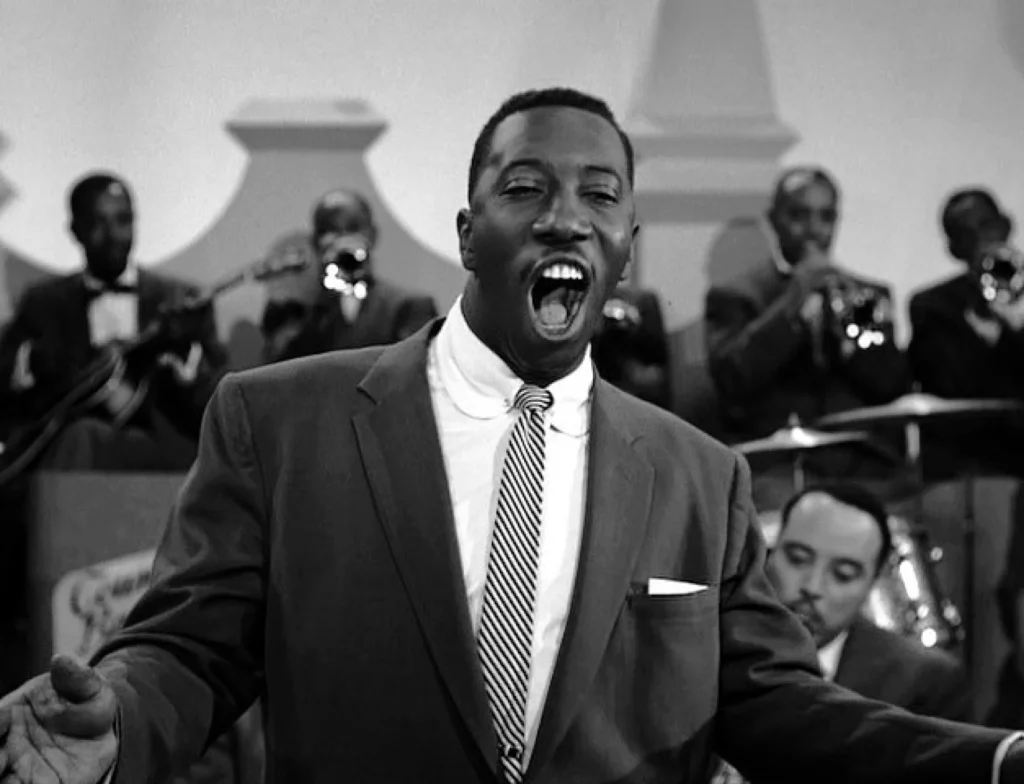
Count Basie called Joe Williams his “Number One son.” The great singer first worked with Basie’s Octet in 1950, and when he re-joined Basie in 1955 the success he’d long sought– he was 37 by then– was suddenly his with Count Basie Swings, Joe Williams Sings. The Verve Records album was bookended by distinctly different songs that shared similar titles, “Every Day (I Have the Blues),” and “Ev’ry Day,” and everything in between its covers was hard-swinging, deeply expressive, brilliantly arranged and perfectly played. It brought Joe to prominence as a singer with flawless intonation and precise enunciation, a powerfully resonant baritone with the trace of a yodel.
Williams’s uniquness as a singer came to mind today as I watched a clip of Jackie Gleason’s 1985 appearance on The Tonight Show. As he and Johnny Carson discussed his multi-faceted career, the Great One made the point that while he and several other comedians had gone on to do excellent work as dramatic actors, the reverse is virtually non-existent. The distinction is a little less emphatic when it comes to singers, but very few vocalists who’ve excelled at singing the blues have also demonstrated excellence as ballad singers (Billie Holiday, Nat King Cole, and Ray Charles are major exceptions), and even fewer who are renowned as crooners prove to be convincing when it comes to blues. Williams, of course, is a bonafide exception to the rule.
December 12 is the 100th birthday anniversary of Joe Williams. It’s also the 103rd of Frank Sinatra. He’s the man seen below at center court, hand-clapping, and probably recalling his own glorious days with the Basie band as Joe sings another favorite from his debut with the Count. Ironically, it’s a tune that he initially resisted when Basie hinted at it as a vehicle for his new singer.
As Williams recalled in a 1979 interview for The World of Count Basie, “We were in Boston and went to a theater where Buddy Johnson and his band were playing. Buddy’s sister, Ella, was singing Alright, Okay, You Win, and I was just kidding with Basie, talking about the [cutesy] way she was singing it. Later that night, we were in an after-hours joint…[Drummer] Sonny Payne and I were still kidding about this chick singing her head off. ‘She sure sounds funky, doesn’t she?’ he said. ‘Yeah,’ Basie said, turning to me, ‘and you ought to sing that song.’ I thought he was kidding me, but he knew how to get my goat and make me angry. ‘You probably can’t sing it as well as that [girl] can.’ So I got with Frank Foster and he made an arrangement…I was concerned it didn’t suit a male vocalist. So I changed it. After I recorded it, the people who wrote the tune recalled the sheet music, rewrote it the way I did it, and now everybody does it that way.”